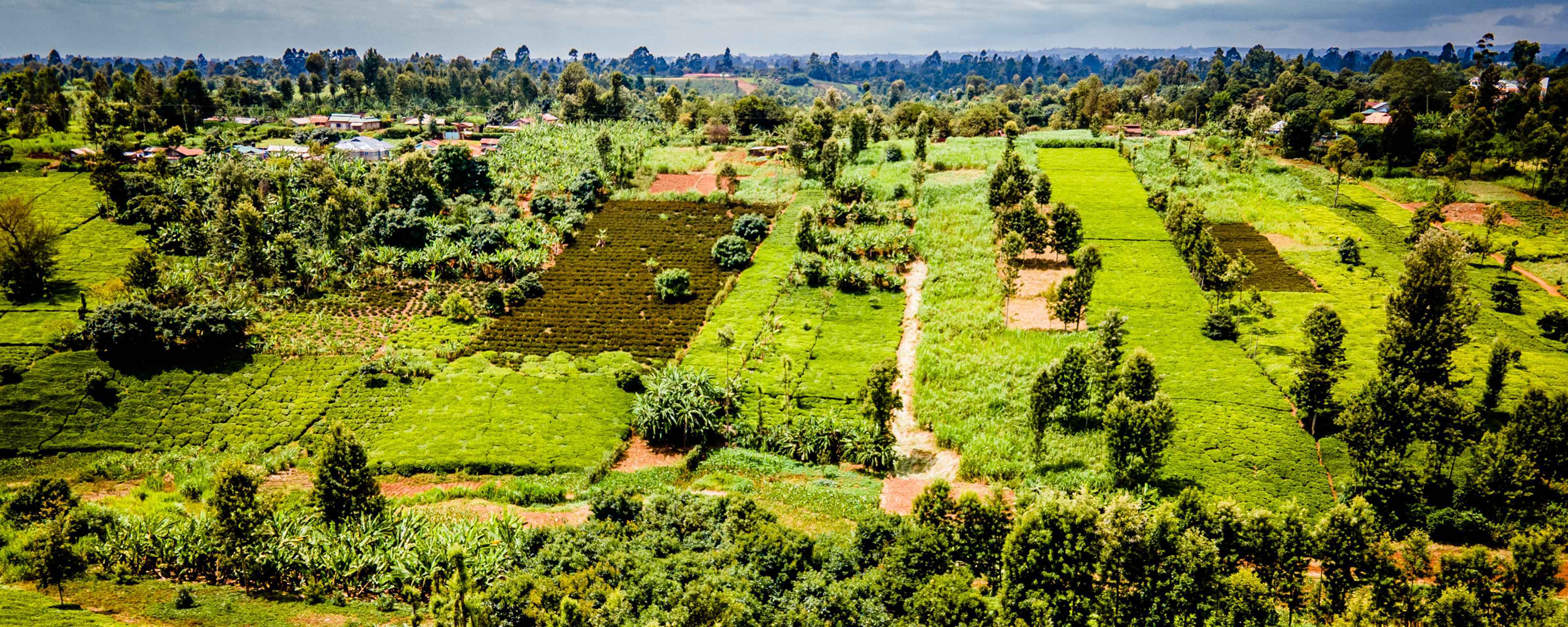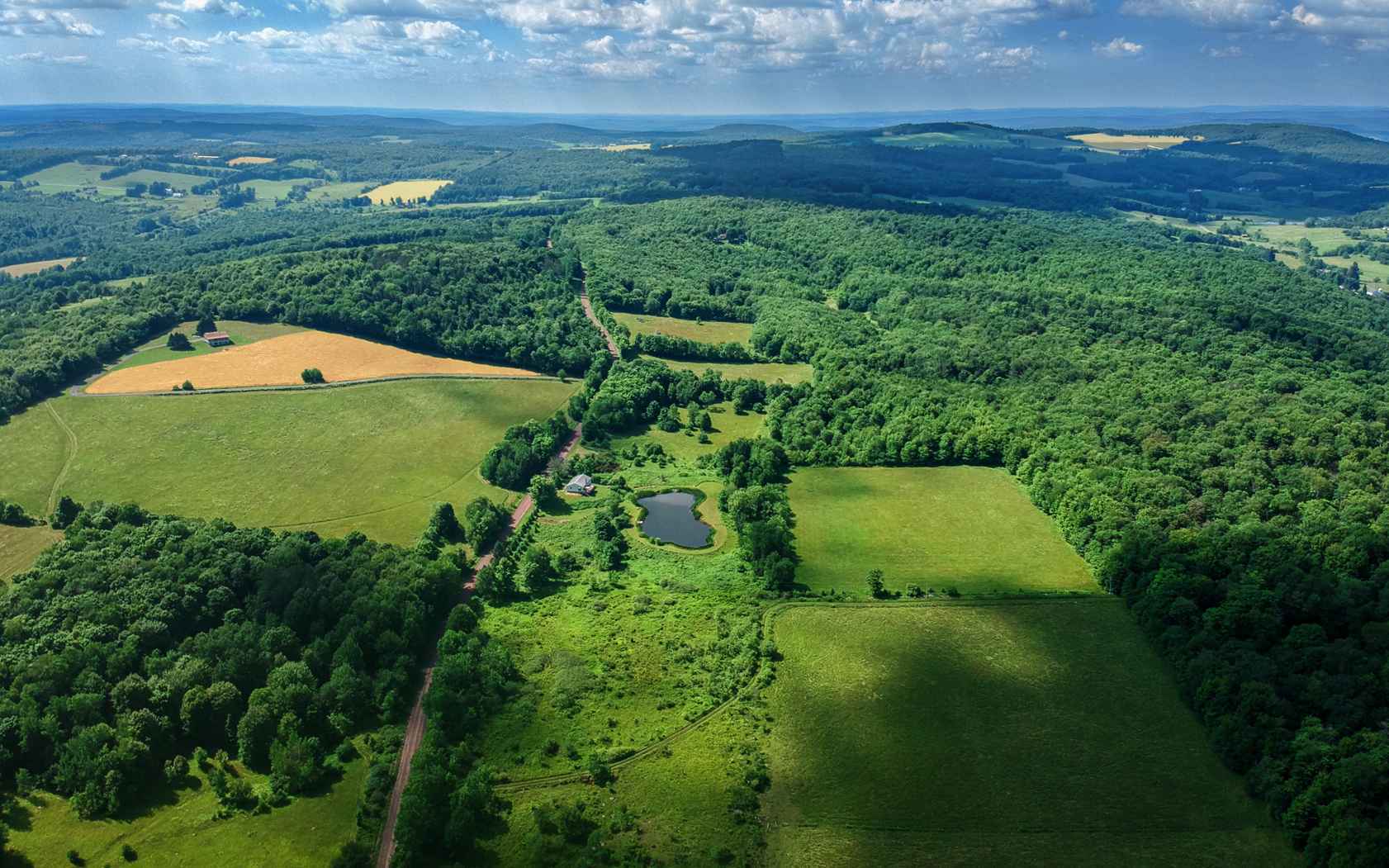It goes without saying that 2022 was a particularly turbulent year. The war in Ukraine, soaring energy prices, growing inequality and the dishearteningly visible impact of climate change shook the very core of our existence and affected our daily lives more than ever.
These predicaments and events throw the complexities of today’s world into stark relief. The undeniable precarity of our situation means more and more people are waking up to the fact that our current systems are no longer tenable. It's clearer than ever that in order to find long-term solutions, we must fundamentally change the way we live, produce and invest. But as more of us begin to look beyond tomorrow, we will see a better future start to take shape. And although 2022 meant sailing through rough waters, we also continued making strides towards real and lasting change.
Using money as a force for good
We see this positive sea change reflected in our growing investment portfolio, which includes companies, entrepreneurs and institutions working on solutions to the world’s most critical sustainability challenges. But how exactly did we use money as a force for good in 2022? Let’s begin our deep dive into our year of impact by highlighting some of the new investments made by our private debt and equity funds in 2022.
Triodos Emerging Markets Renewable Energy Fund and Triodos Groenfonds each provided a USD 8.5 million loan for the construction and operation of the largest wind power project in Vietnam, the Lotus Wind Power Project. This outstanding project supports the country’s green energy ambitions and rapidly rising demand for energy.
Triodos Food Transition Europe Fund took a minority equity stake in StadtSalat. The aim of this food chain is to transform the convenience food sector in Germany so that it becomes healthier and more sustainable. The food chain sources organic produce, uses recyclable package packaging and achieves very low rates of food waste.
Triodos Energy Transition Europe Fund entered into a partnership with GridBeyond, allowing for the installation of a pipeline of battery storage projects across the UK and Ireland. Given the key role these project play in managing supply and demand of renewable energy, we see financing storage capacity projects as a broader responsibility in the energy transition.
Mexico-based fintech company Garantia addresses one of the most pressing issues in emerging markets: access to high-quality healthcare services that primarily serve people in low and middle-income brackets. Triodos Microfinance Fund and Triodos Fair Share Fund have provided a USD 4 million to Garantia to further expand its leasing portfolio.
Let’s take a look at our Impact Equities and Bond funds and a few striking examples of new additions to their portfolios. Triodos Pioneer Impact Fund added Japanese company S-Pool to its portfolio. S-Pool provides outsourcing services, including temporary staffing opportunities for groups who traditionally find it challenging to find employment opportunities, such as single mothers, seniors and people with disabilities.
Triodos Global Equities Impact Fund invested in EssilorLuxottica, one of the world's leading makers of lenses, frames and sunglasses and a co-founder of the OneSight Foundation, which provides free eye exams and eyeglasses to people in need. Triodos Euro Bond Impact Fund added a green bond issued by Norwegian company Statkraft to its portfolio. The proceeds of the bond will be used to finance the construction of new solar, wind and hydropower plants. Triodos Future Generations Fund took a position in American PowerSchool, whose software solutions enable a more tailored approach to education. More importantly, remote access allows children to continue learning even if they can't be at school.

Putting money where our youth is
One of the most enduring human dreams is the idea that our children and grandchildren will one day fare better than us. Today, the realisation of this dream seems more challenging than ever, which is why we’re putting our money where the youth is. In March 2022, we expanded our range of investment solutions by launching Triodos Future Generations Fund, offering professional and retail investors the opportunity to invest in a concentrated portfolio of global listed small and midcap companies that support the health, wellbeing, education and safety of children.

Capitalising on engagement
Money is like energy - it provides the power to get things moving. When we invest in companies, entrepreneurs and institutions, we want to ensure that we're powering the transition we aim to see. But we're more than just a provider of capital. We capitalise on engagement by using our voices to start crucial conversations and leveraging our expertise to advocate for change.
We have one-on-one conversations with companies to discuss sustainability topics that are important to us as an impact investor. We do this both on an ad hoc or event driven basis and by following a formal engagement agenda. During 2022, our engagement for our public market funds focused on the following four topics:
Executive remuneration
The widening gap in wealth and income distribution has reached indefensibly unsustainable levels in today’s world, and excessive executive remuneration is an important cause of this. One of our responsibilities as an impact investor is to encourage balanced and fair remuneration policies and practices, which limit excessive CEO remuneration and reduce the pay gap in listed companies. To spread awareness and spur action, we engaged with listed companies on this topic and published our paper ‘Executive Remuneration. Enough is Enough.’ What did our engagment on this topic look like?
Climate change
We aim to contribute to the goal of keeping global warming limited to 1.5°C above pre-industrial levels and reach net zero carbon emissions around 2050. We continued our climate change engagement project during 2022, encouraging our portfolio companies to set science-based emissions targets that are aligned with the Science Based Targets initiative (SBTi).
Hazardous chemicals
Many commonly used chemicals are inherently hazardous, and when improperly used or poorly managed, they can threaten both human health and the environment. To combat this threat, we joined a collaborative engagement encouraging chemical companies to phase them out and transition towards more sustainable solutions.
ESG in Japan
During our Japan Engagement project, we spoke with a total of 16 Japanese companies, mainly from the consumer staples and consumer discretionary sector. When compared to the Americas and Europe, ESG in Japan is still in the maturing phase. This fact combined with the relatively high exposure to Japanese companies in our portfolios meant that discussing a wide range of ESG topics was essential.

Sharing our way of thinking
In 2022, we continued to share our way of thinking and make our voices heard on the issues that matter most. A theme we were particularly outspoken about this past year was biodiversity loss. One of the most urgent and complex systemic risks we face, biodiversity loss is a challenge with far-reaching consequences. The only path forward on this matter is a serious re-assessment of both our production and consumption patterns and the economic assumptions underlying individual and collective decision-making. In our white paper ‘Biodiversity. Beyond Risk and Return’ we explain how the financial sector can contribute to preserving biodiversity and present our approach to the challenge of conservation.

Making SFDR and EU Taxonomy work
Legislation is another area where we’re seeing waves of positive change taking shape. For the first time in history, the financial sector is facing regulations on sustainability, guided by the European Union Sustainable Finance Action Plan. While these legislations are not perfect in their execution, they do mark a pivotal moment. We applaud calling for the sound management of sustainability risks and transparency by all financial market participants to prevent greenwashing and impact washing.
The Sustainable Finance Disclosure Regulation (SFDR) and the EU Taxonomy are key elements of this broad action plan. During 2022, we further implemented rules and published disclosure requirements to ascertain that all Triodos funds are classified as Article 9 funds, the most sustainable category.
While we see this regulation as instrumental in directing billions of euros into sustainable investing, we also weren't shy about addressing the pitfalls and counterproductive effects of these legislations in 2022. These legislations are a step in the right direction, but we must remain critical if we hope to see real change.
We also spoke about how the current implementation of EU Taxonomy leads to a distorted picture as this green framework is not yet complete and also includes non-sustainable activities. We expressed our disappointment that many asset managers who have opted for the highest sustainable rating – Article 9 under SFDR – are now backpedalling. We feel that by doing so, the wider financial sector is effectively choosing for status quo. And the status quo means a world without a sustainable future.
Under current regulations, funds that claim to be sustainable must explicitly show what that claim is based on. However, ‘dirty’ investment funds are not held to the same standard. These investment funds do not have to provide any warning about the damage that they are inflicting on natural capital or, for instance, on biodiversity. This flaw in regulations serves to obscure the very real and damaging impact of dirty funds, and it is high time we fix it. Every investment has impact and we must ensure that impact is positive.

Walking the talk and looking ahead
Talk is cheap if you never put words into action, which is why we always aim to walk the talk. We first joined the B Corp community in 2015 and being recertified as a B Corp in 2022. B Corp is a growing community of successful and sustainable companies that create positive social impact and change. Being part of this community provides clarity about the kind of business we want to be and how we want to conduct ourselves. We’re proud to be recertified as this helps increase awareness and credibility of our corporate sustainability. It also demonstrates that a business-model focused on long-term added value (rather than short-term financial profit) is not only possible, but desirable.
Making money work for positive change has always been the driving force behind Triodos Bank’s and Triodos IM’s activities as financial players. To reach our goal – a prosperous life for all people on a thriving planet – we must transform our economy and society. We must make the necessary shift towards more sustainable production methods and the sustainable use of energy, food and resources. Such a sweeping transformation can only be effective if we strengthen our social foundations and continue investing in our individual and collective wellbeing. Only then will we see real, positive change.
In 2022, we outlined a clear roadmap of how we plan to reach this goal. This roadmap will translate into a concrete strategy for all Triodos Bank entities, including Triodos IM, over the course of 2023. Want to learn more about our long-term vision for the future? Read our interview with Federica Masut and Hans Stegeman who discuss the sustainable transition at the core of this impact vision and the need for targeted action based on radical choices.
Tumultuous times often reveal the cracks in our foundations. After all, even crumbling houses don’t buckle under the weight of a light breeze - it takes a storm to knock them down. While this past year has been turbulent, the events of 2022 have made it clearer than ever that we must rebuild our economy and society from the ground up. Band-aid solutions are no longer going to cut it. To ensure a liveable world for future generations to come, we must invest in the deep, systemic transformation.








